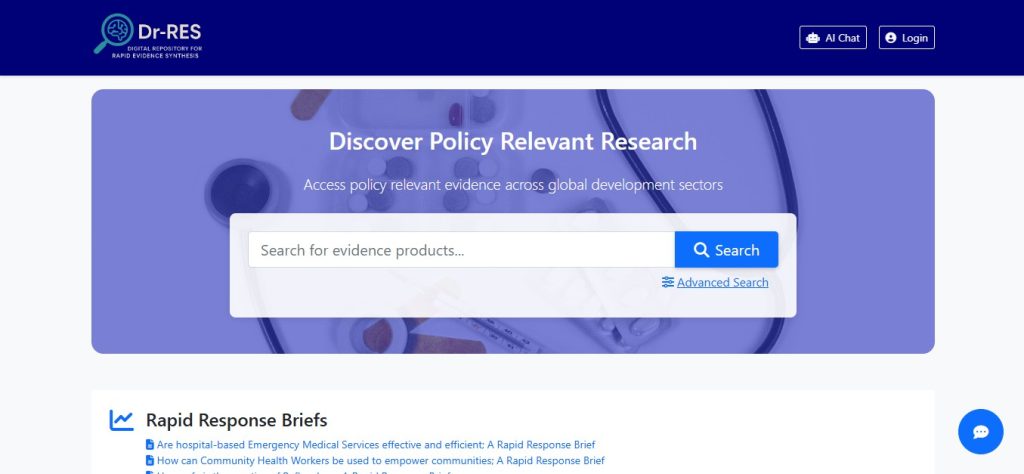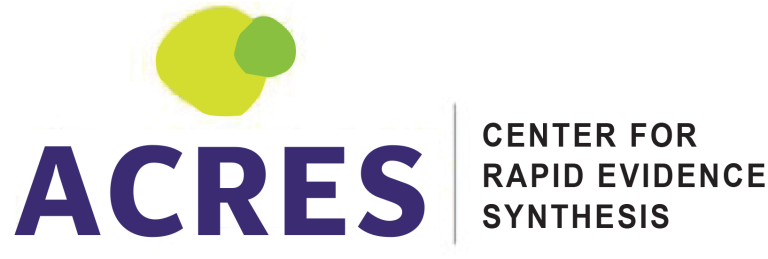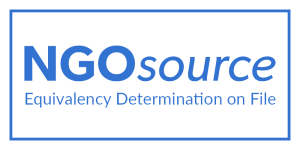The Digital Repository for Rapid Evidence Synthesis (Dr-RES)

The Digital Repository for Rapid Evidence Synthesis (Dr-RES) is a centralized, open-access, AI-powered platform that aims to improve access to rapid evidence synthesis i.e. availability and understanding, and standardizing evidence synthesis formats
In Africa and other parts of the developing world, decision-makers often face challenges in accessing relevant and reliable evidence to inform their policy decisions. This can lead to ineffective or inefficient interventions, ultimately affecting the well-being of communities. To address this gap, working with partners, we embarked on a project to develop a digital platform that would provide a one-stop-shop for evidence on thematic learning areas relevant to various projects.
With support from the Building a culture of EIPM (B-cue) in Uganda and the Africa LEEPS Projects, we developed the Dr-RES using Large Language Model (LLM) tools to ease EIDM. So far (May, 2025), at least 4,000 primary studies and 70 Rapid Response Briefs have been indexed on the platform.
Target audience
The Dr-RES is designed to support various stakeholders, including:
- National and sub-national government agencies
- Civil Society Organizations (CSOs)
- Academic and research institutions
- Healthcare providers and professionals
- Development partners and NGOs
- The general public
Key features and benefits
The Dr-RES offers several key features and benefits, including:
- User-friendly interface and seamless navigation
- High-quality, relevant, and up-to-date evidence
- Access to primary studies, evidence synthesis products, and briefs
- Opportunities for training and support
- Promotion of evidence-informed decision-making
The Dr-RES is a platform that has the potential to transform the way decision-makers access and use evidence.


